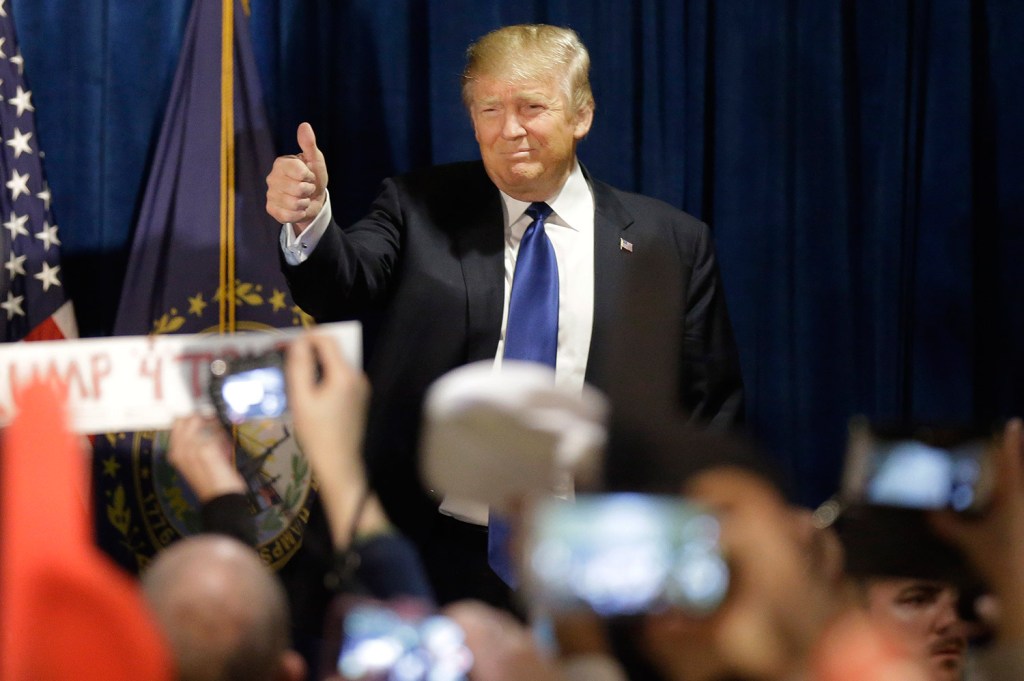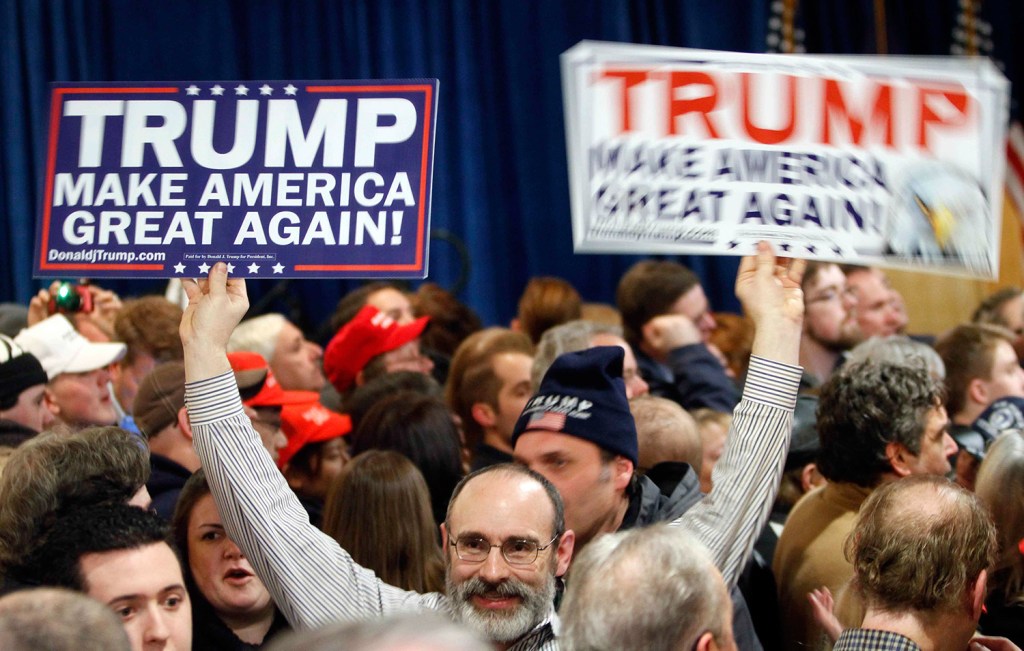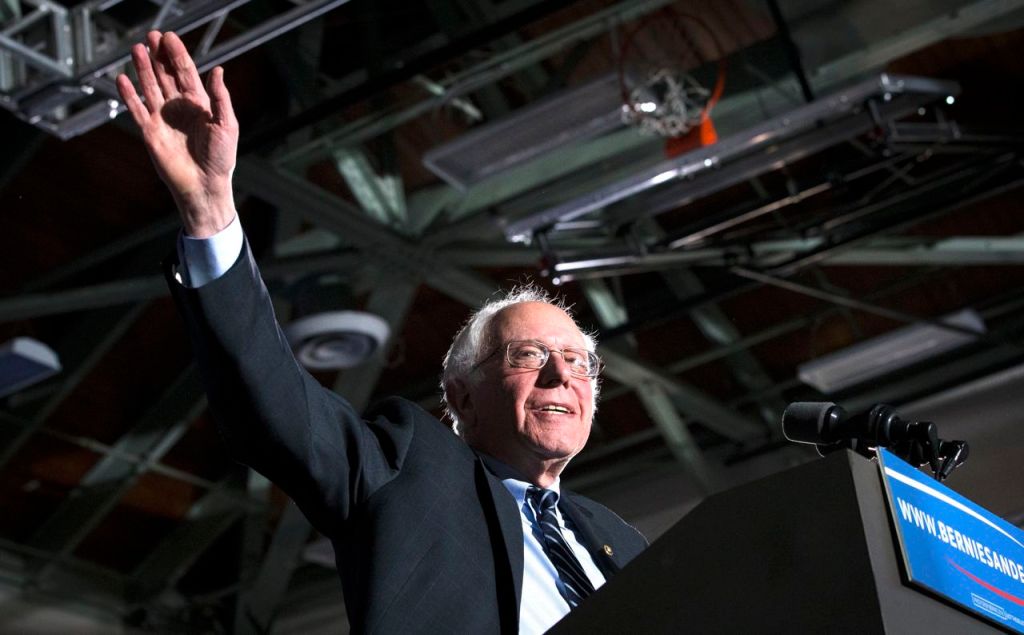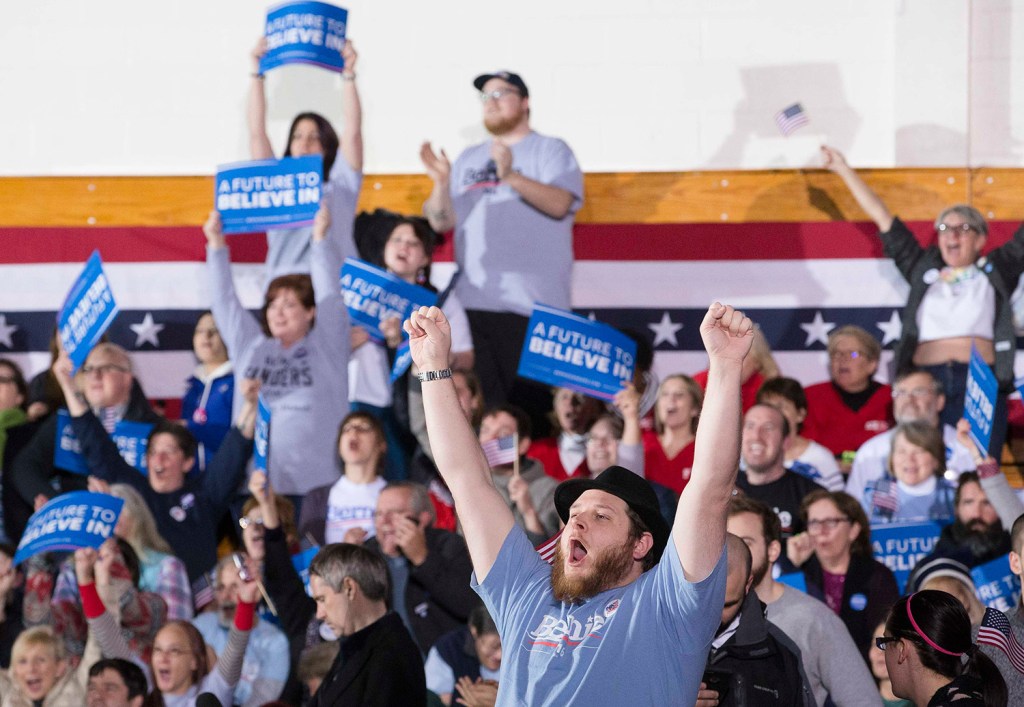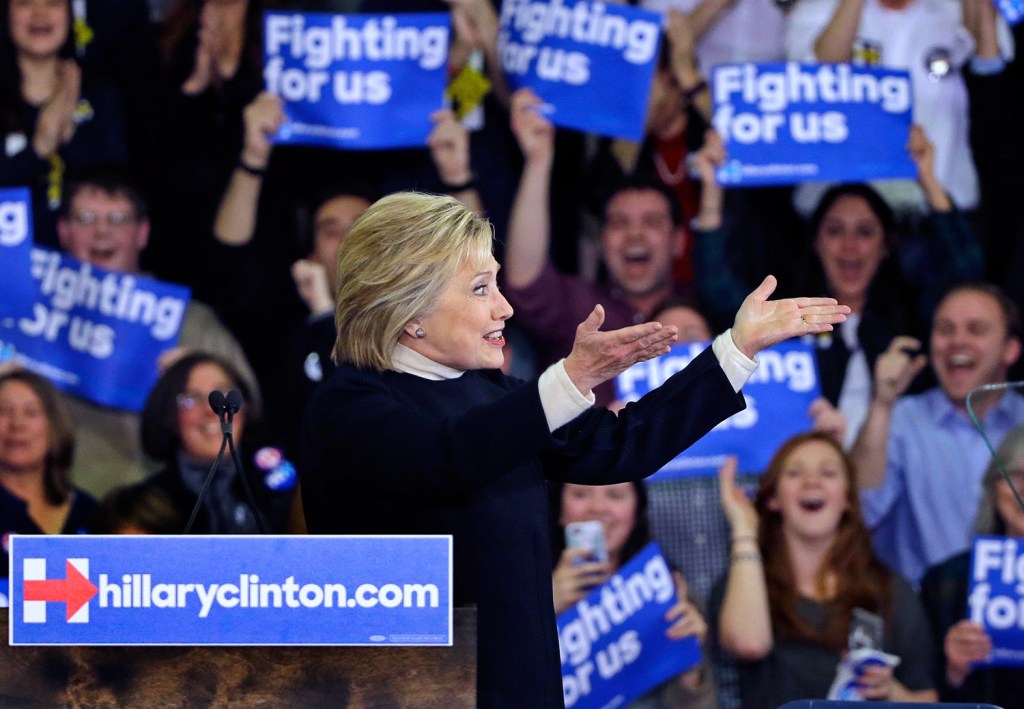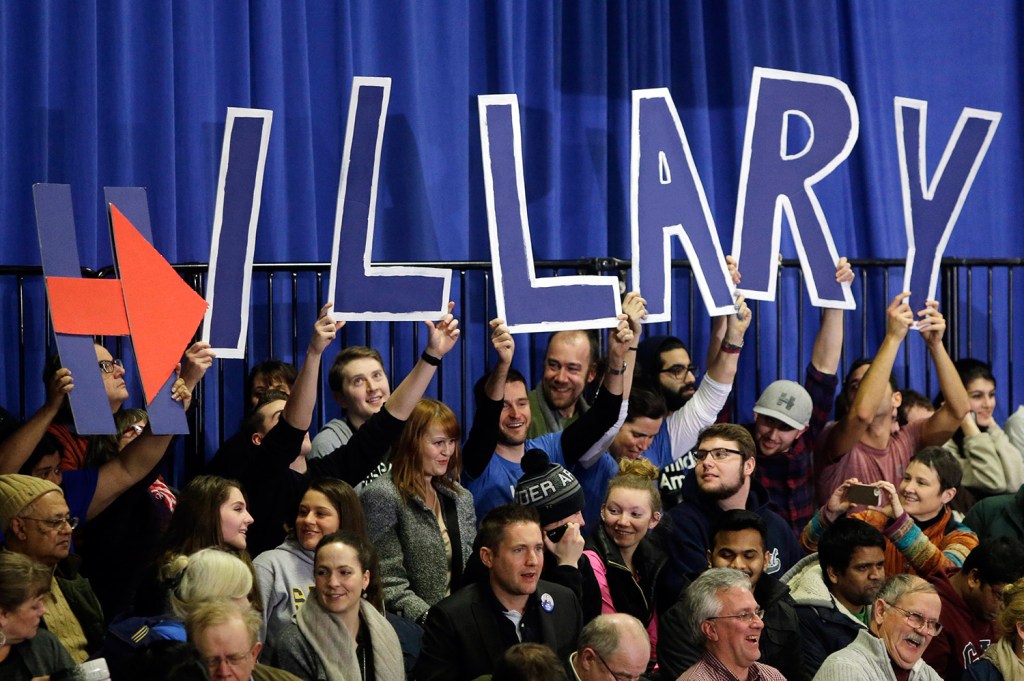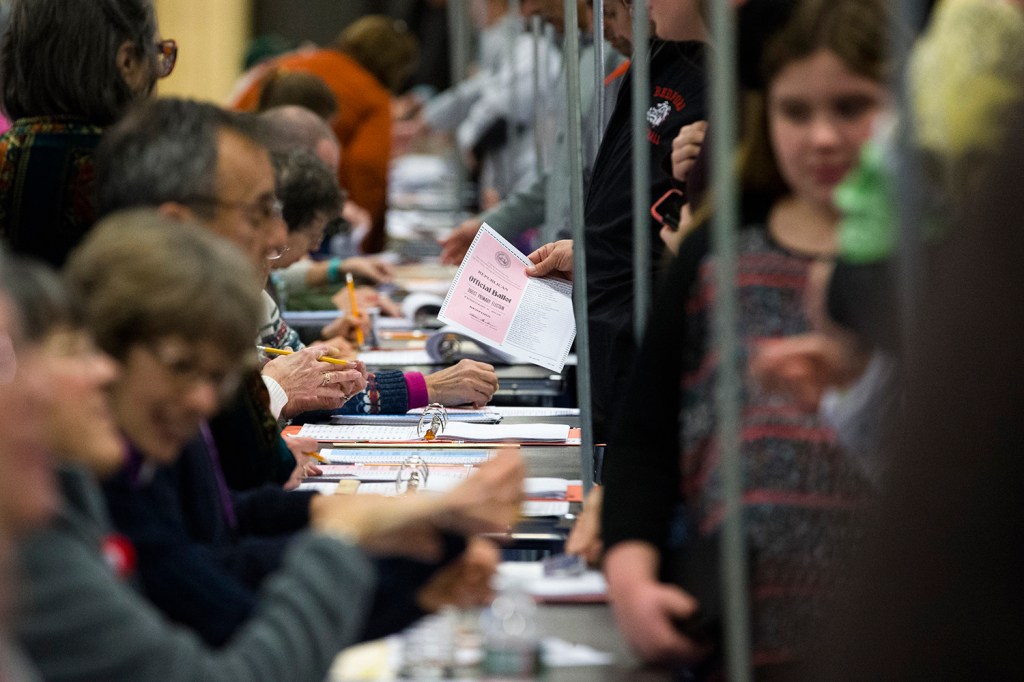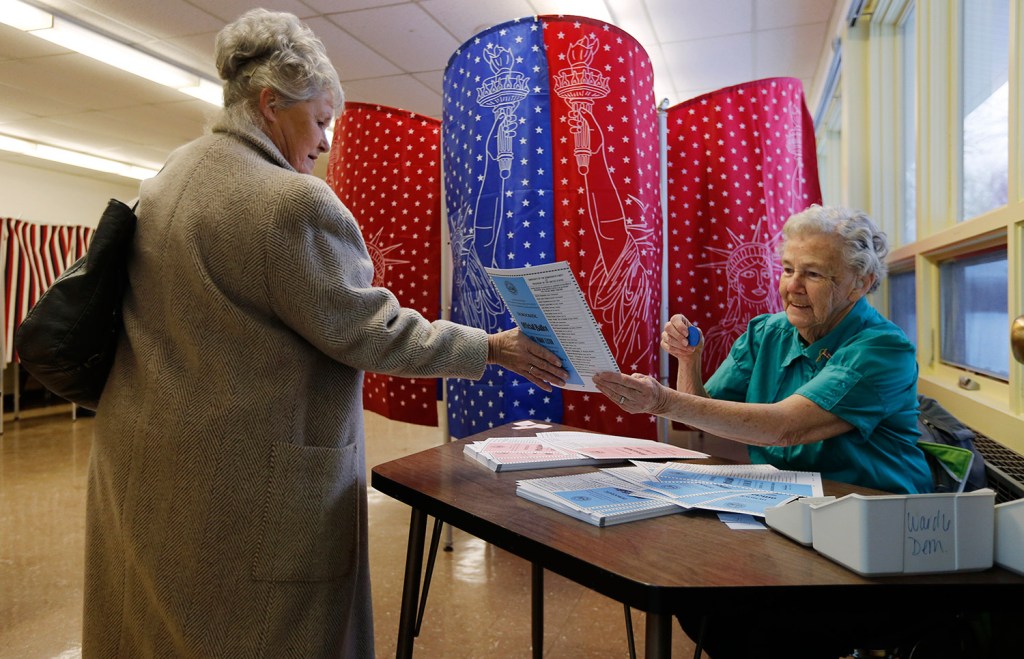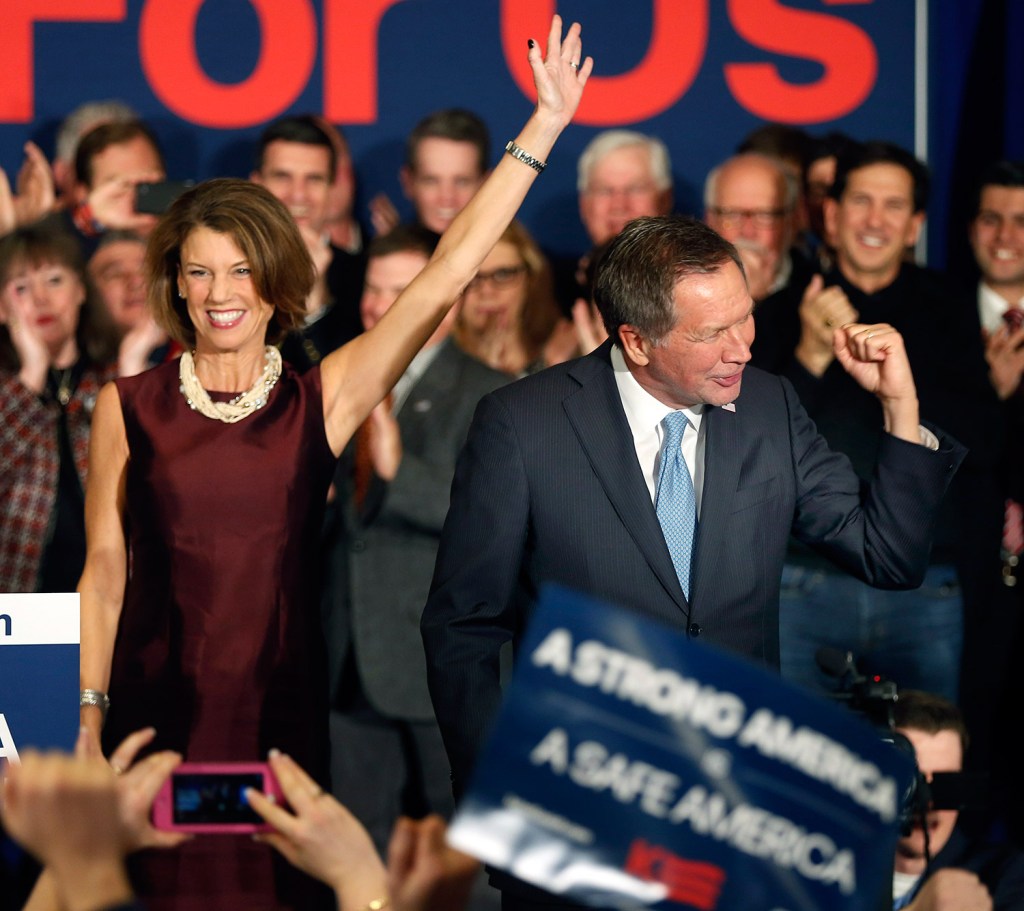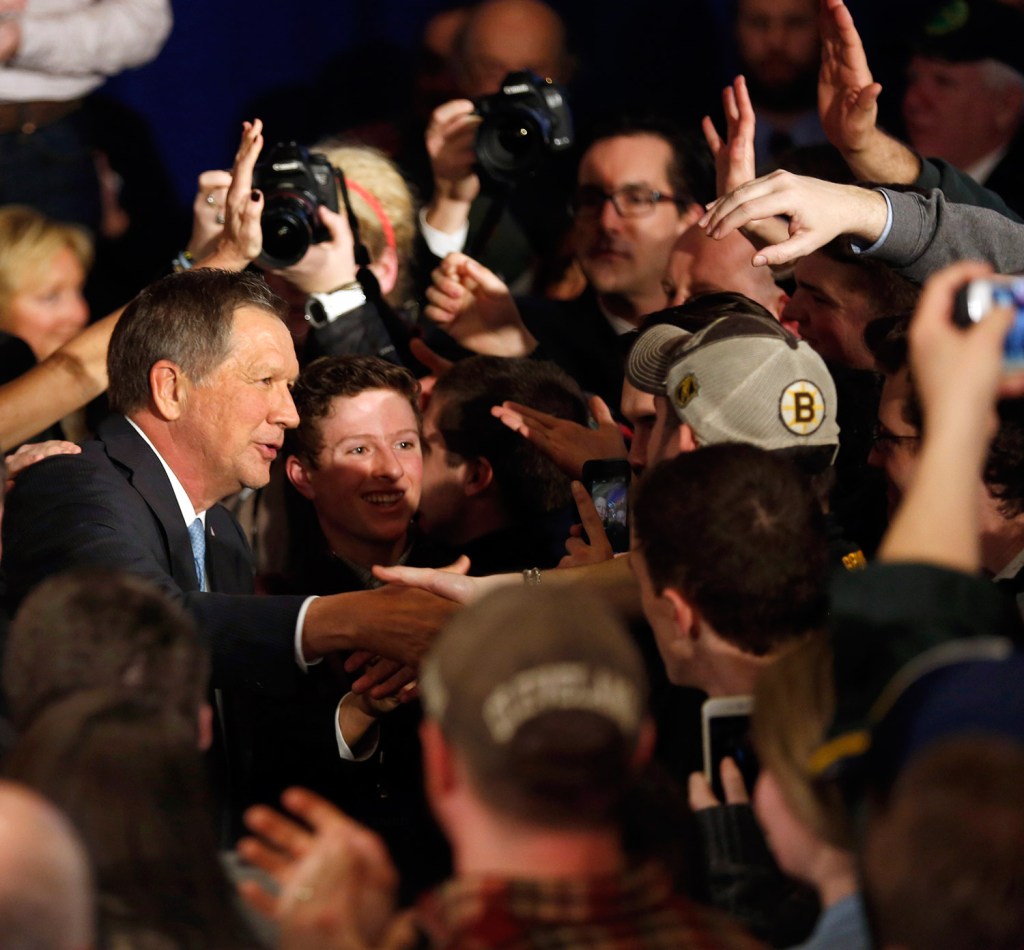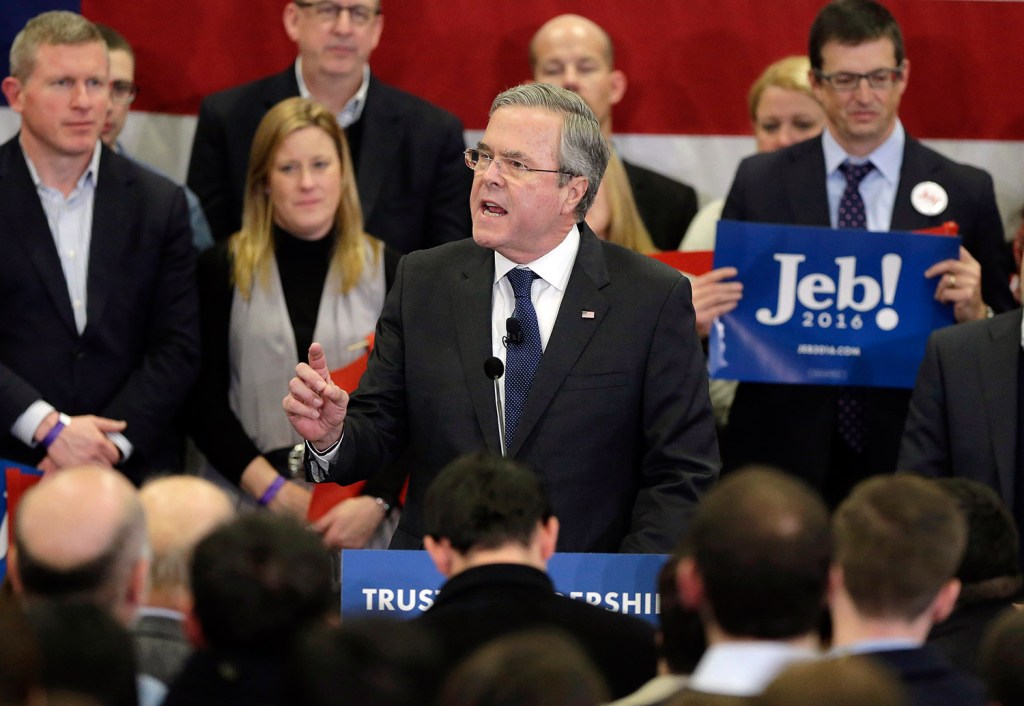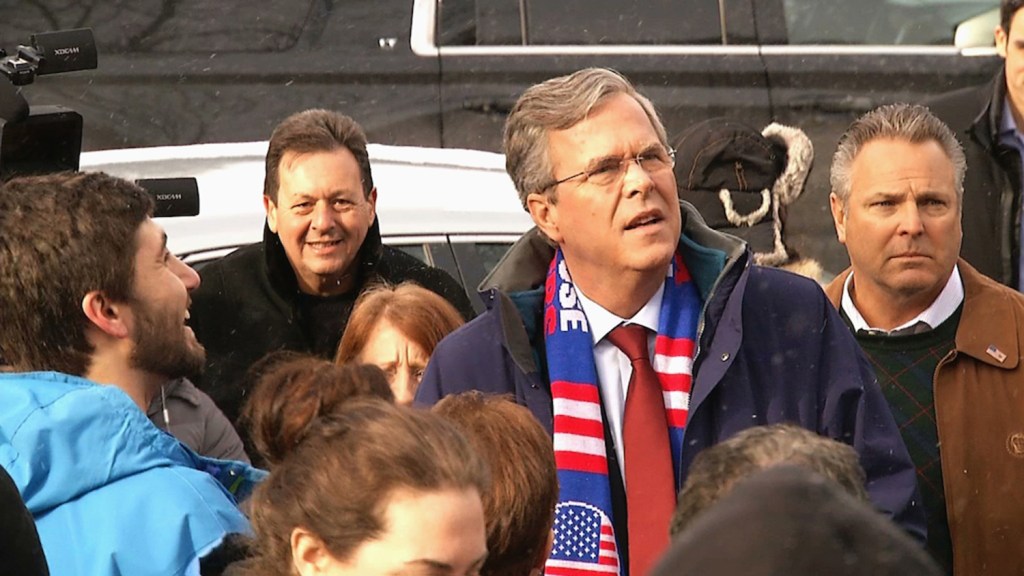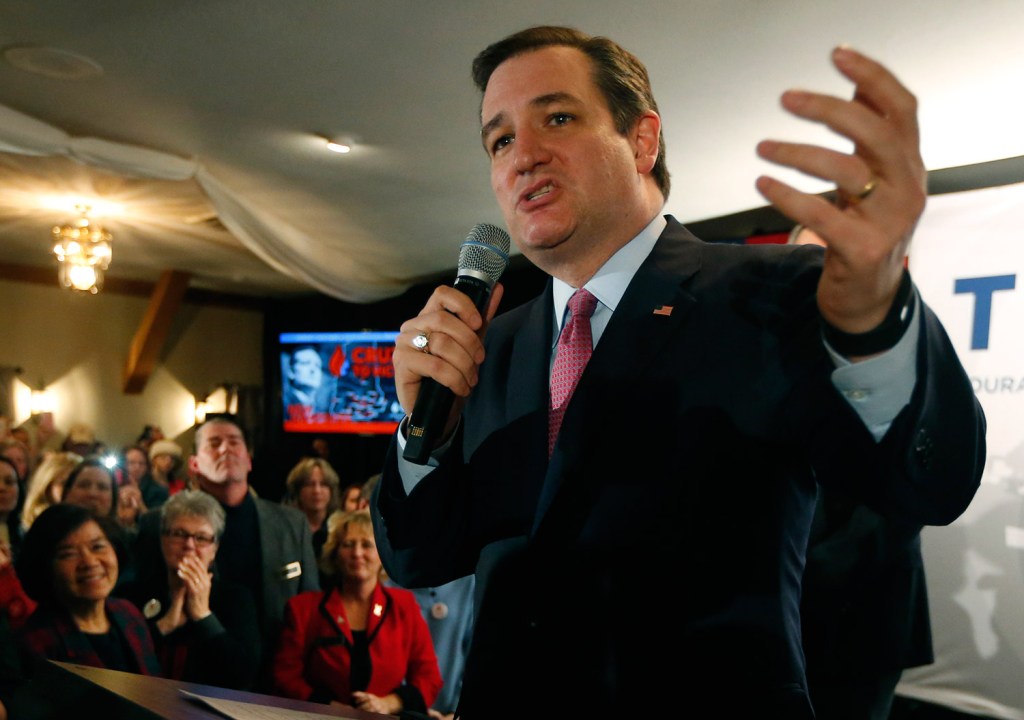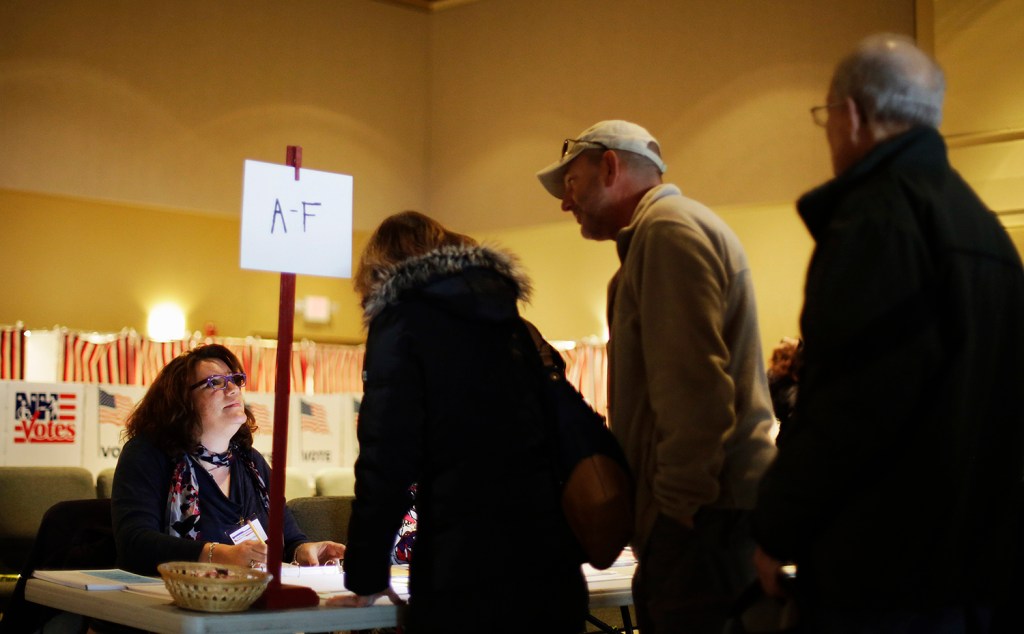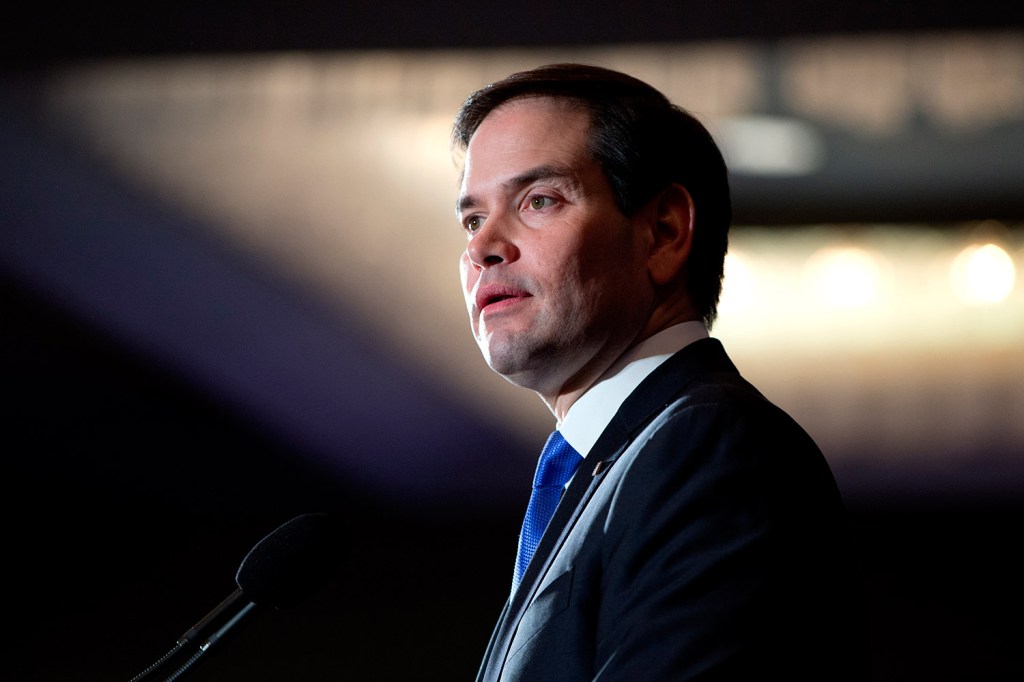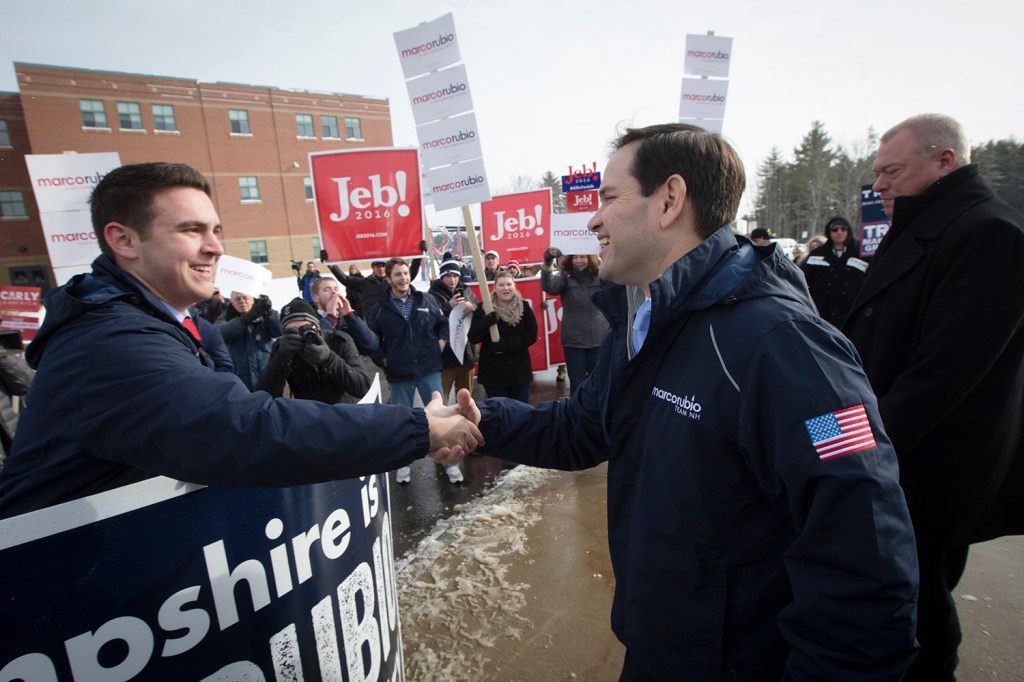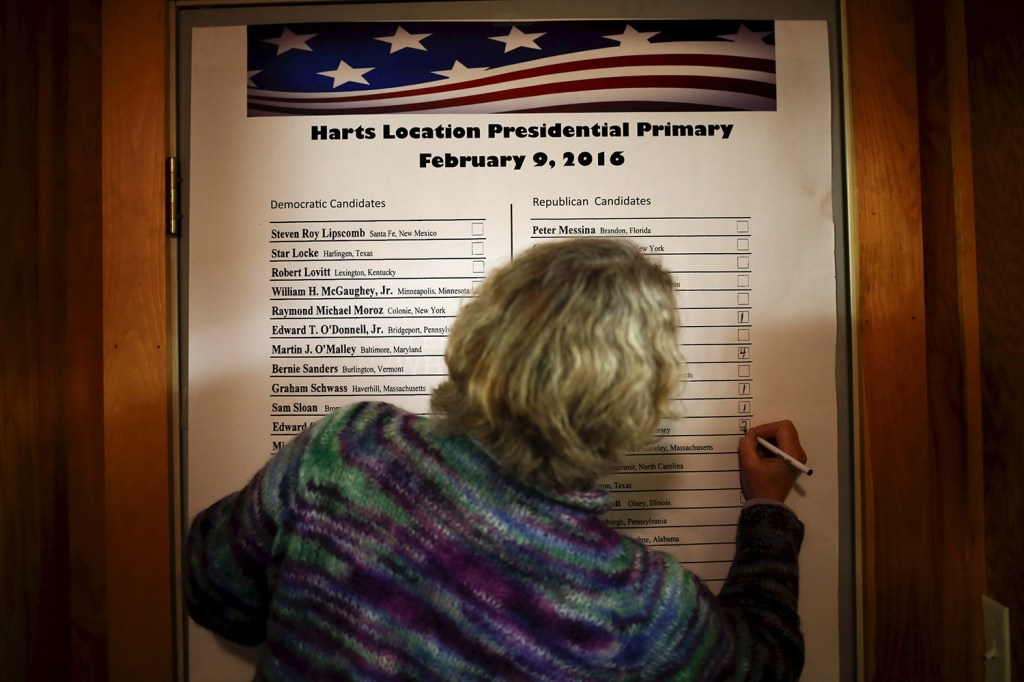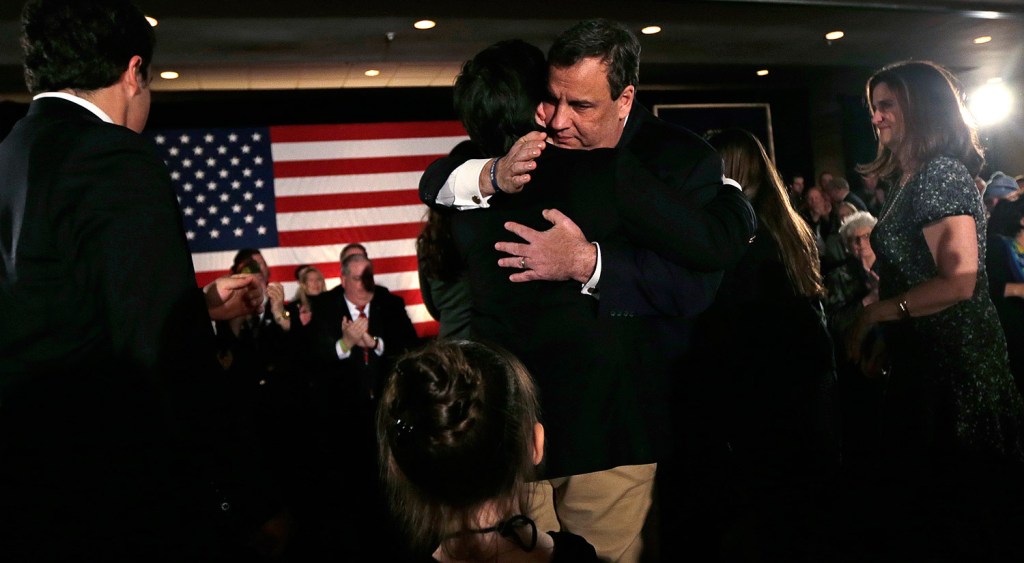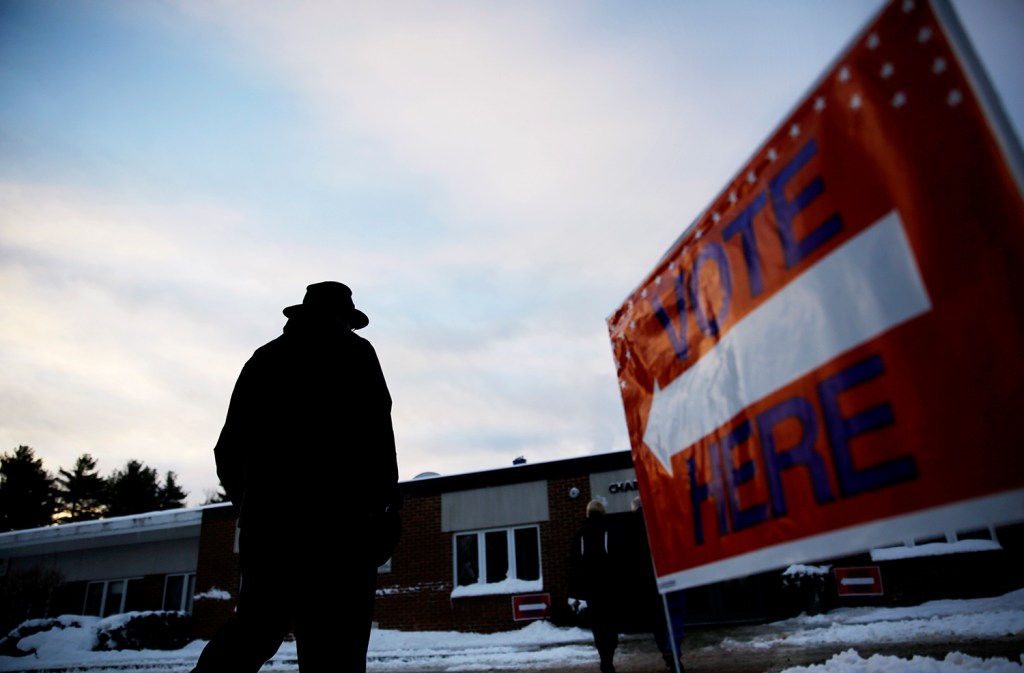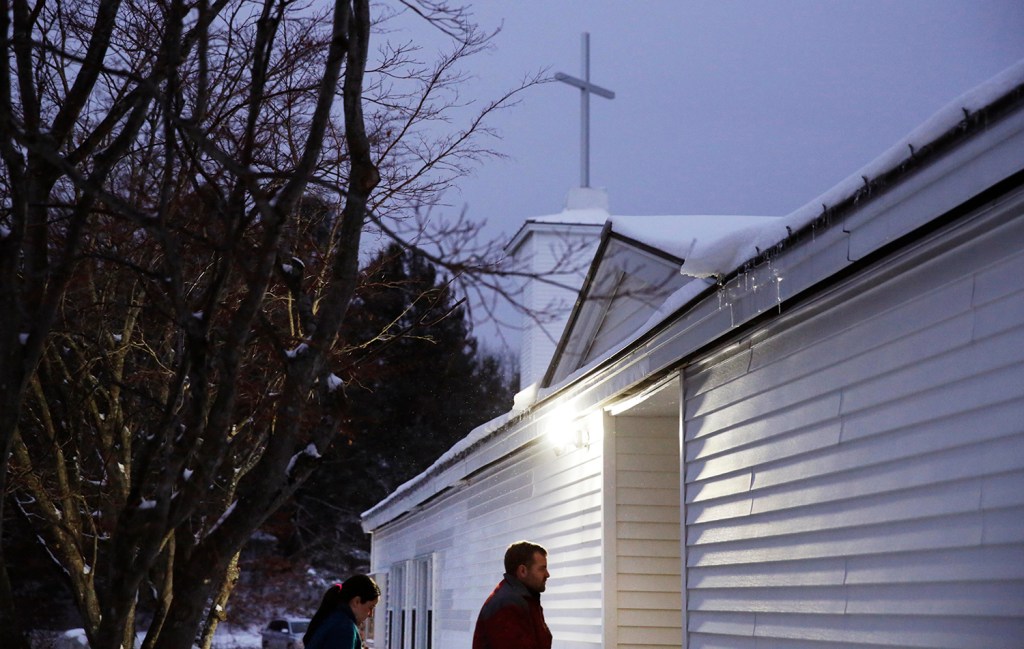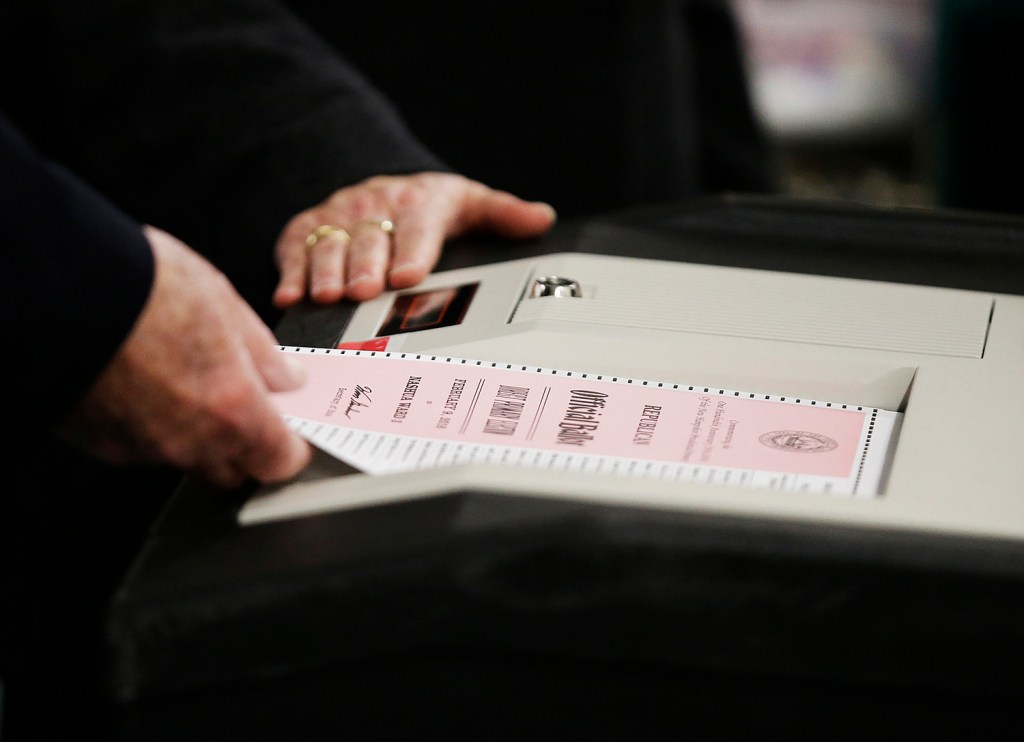MANCHESTER, N.H. — Donald Trump and Bernie Sanders looked to emerge from Tuesday’s New Hampshire primary with their first victories of the 2016 presidential election, while their rivals hoped that a state famous for political surprises would give their own White House bids a needed boost.
Even if Republican Trump or Democrat Sanders were to stumble, the two were assured of moving on. However, for some Republican candidates, the outcome could determine whether their campaigns continue beyond the northeastern battleground. Jeb Bush, John Kasich and Chris Christie spent most of their time in the state in recent weeks, and needed to show voters, as well as crucial financial donors, that they’re viable candidates.
“This is my 72nd day in the state,” said Christie, the New Jersey governor, during a campaign stop Tuesday. “I think I’ve done enough to do well here.”
The governors believe their prospects were helped by Marco Rubio’s rocky debate performance last week, which they say exposed the Florida senator as too inexperienced to serve as president. However, it was unknown heading into Tuesday’s contest whether voters would shy away from Rubio or help him make the case that he’s best positioned to take on Trump and Texas Sen. Ted Cruz.
If Rubio and the governors finish in a pack, it’s likely to frustrate Republican Party elites who are eager to coalesce around a single candidate to challenge Trump and Cruz, whom they believe could be unelectable in November.
Nearly half of voters in the Republican primary made up their mind in the past week, according to early exit polls conducted by Edison Research for The Associated Press and the television networks. Republican voters were more negative about their politicians than Democrats, with about half of Republican voters saying they felt betrayed by party officials.
Among Democrats, Sanders has maintained a sizeable advantage over Hillary Clinton in New Hampshire for weeks. The state is friendly territory for the senator from neighboring Vermont and a must-win if he’s to stay competitive with Clinton as the race moves to more diverse states that are seen as more hospitable to the former secretary of state.
“If we have a large voter turnout I think we’re going to do just fine,” Sanders told reporters as he took a walk around Concord on Tuesday afternoon.
Clinton started her day at a Manchester polling site, where she thanked volunteers and local supporters.
“This is a great process, and as I have said over the last couple of days we’re going to keep working literally until the last vote is cast and counted,” she said. Clinton’s campaign was hoping to narrow the gap with Sanders in New Hampshire, a state where she pulled off an unexpected victory over Barack Obama eight years ago.
Democratic voters in New Hampshire made their choices earlier than Republicans, with more than half saying they decided more than a week ago, according to the exit polls. About 7 in 10 Democrats said they want a candidate who has experience in politics; about a quarter want someone outside the political establishment.
The enthusiasm behind Trump, a real estate mogul who has never held political office, and Sanders, a self-described democratic socialist, underscores the public’s anger with the current political system. Even if neither candidate ultimately becomes his party’s nominee, whoever does will have to reckon with the voter frustration they’ve tapped into.
For Trump, New Hampshire is his state to lose. After a second-place finish behind Cruz in Iowa last week, he accepted some of the more traditional trappings of presidential campaigns, including smaller town halls with voters. Still, he closed the final full day of campaigning with a vulgar insult of Cruz.
The Texas senator brushed off Trump’s comments, saying the reason the businessman engages in insults “is because he can’t discuss the substance.”
As voters trickled into polling stations early Tuesday, the results seemed far from decisive. Republican John Starer, 72, said he made up his mind about five minutes before he cast his ballot for Cruz. He said he was torn between Cruz and Trump but didn’t think Trump could be elected.
“I think (Cruz is) about the only one who could possibly get elected as a Republican,” he said
The large Republican field was winnowed after Iowa, but there remains a group of more traditional candidates, including Rubio and the governors.
Rubio appeared to be breaking away after a stronger-than-expected showing in Iowa, but he stumbled in Saturday’s debate under intense pressure from Christie. The New Jersey governor has relentlessly cast the young senator as too inexperienced and too reliant on memorized talking points to become president.
Rubio played into Christie’s hands by responding with the same well-rehearsed line each time he was challenged by the governor. Rival campaigns hope the moment was enough to give voters pause.
Megan Tolstenko, 33, an unaffiliated voter from Manchester, voted Tuesday for Christie, saying she thinks he would be best able to manage the country’s defenses and the fight against the Islamic State group.
Kasich, who has prided himself on avoiding attacks on his rivals, said he hoped New Hampshire voters were “fed up with the negative.”
Send questions/comments to the editors.

